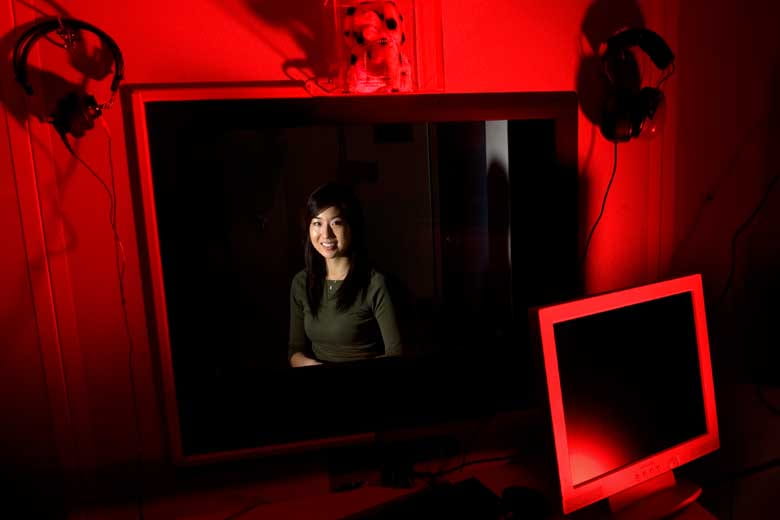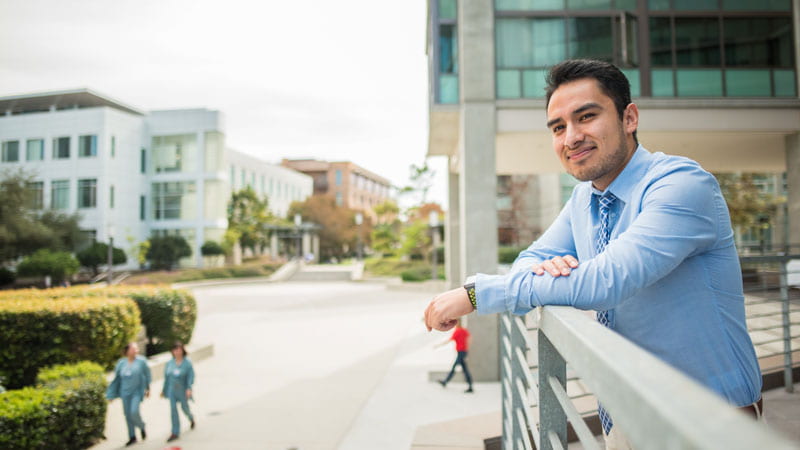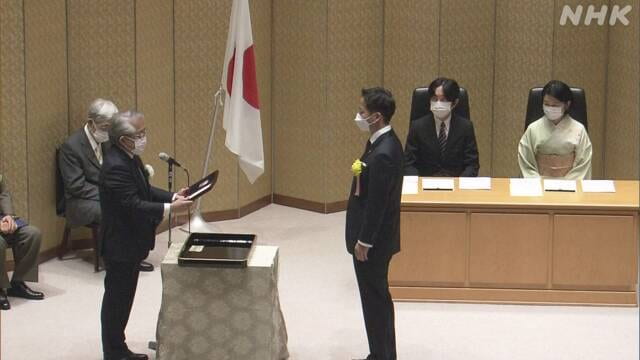Making an impact on tinnitus
Public Impact Fellowship recipient Janice Chang hopes a new electronic stimulation therapy can bring relief to tinnitus sufferers.

Janice Chang’s interest in hearing began at age 10, when she became fascinated by a classmate’s cochlear implant. It continued as she earned a bioengineering degree at UC Berkeley — coming home to Irvine each summer to work in the lab of UC Irvine’s Fan-Gang Zeng, a world-renowned hearing and speech disorders researcher.
Now, as an M.D.-Ph.D. student at UCI, Chang is focused on finding new treatments for tinnitus. More than 50 million Americans have some degree of prolonged ringing in the ears, and — like snowflakes — no two cases are the same. Frequency and intensity vary widely, from subtle background noise to a debilitating din requiring medical attention.
There is no cure, and management strategies work only for some. In addition, the number of sufferers is expected to grow: Studies indicate that long-term use of earbuds can cause irreversible hearing damage potentially leading to tinnitus, and the affliction is common among veterans returning from the Middle East.
Chang is trying to determine whether cochlear implants can help in the most severe cases, and she has found that electronic stimulation of the auditory system shows promise in suppressing the persistent ringing.
“Tinnitus can be devastating, and it affects so many people,” says Chang, who was recently awarded a $10,000 Public Impact Fellowship from UCI’s Graduate Division. “Hopefully, our efforts to identify an effective pattern of stimulation will yield an approach that can dramatically improve a person’s quality of life.”
Chang is in the right place. Besides Zeng’s groundbreaking work on cochlear implant design and his clinical research on sound suppression of tinnitus with UCI otolaryngologist Dr. Hamid Djalilian, UC Irvine Healthcare boasts one of the nation’s premier tinnitus treatment centers.
“Janice is addressing some very important questions that few people have paid attention to,” Zeng says. “And she is doing it very systematically and efficiently.”
Tinnitus is believed to be caused by injury to the auditory system that inhibits the proper transmission of sound signals to the brain, which compensates by creating a substitute sound perceived by sufferers as tinnitus’s hallmark high-pitched ringing. Chang notes that those with severe hearing impairments often have the most disabling tinnitus.
For her research in Zeng’s Hearing & Speech Lab, Chang uses specially crafted cochlear implants — small, sophisticated electronic devices that can provide a sense of sound to someone severely hard of hearing or deaf — to stimulate damaged areas associated with tinnitus. This artificially restores activity in the auditory pathway, which could limit or completely eliminate the substitute sound.
“I believe that stimuli delivered at the appropriate level, rate and location will be able to alleviate the disorder’s ringing noise,” says Chang, who, after finishing medical school, would like to link her practice with continuing tinnitus research.
In a small study last year, she and colleagues tested the electronic stimulation method on 12 cochlear implant users with tinnitus. Eight reported suppression of greater than 30 percent, with six of them experiencing complete relief during electronic stimulation.
Chang says these preliminary results are encouraging, but — since tinnitus is so complex and unique to each sufferer — much more work remains to be done. Current commercial cochlear implants are designed to send only sound signals optimized for speech, so a new model would need to be created to incorporate a specific signal for tinnitus suppression.
“One of the patients in our study had lived with tinnitus for 50 years, and she was so thrilled that the terrible ringing went away for the rest of the day after electronic stimulation therapy,” Chang says. “That’s the most satisfying part of this work — seeing what a big impact it can have on life, on day-to-day functioning.”



